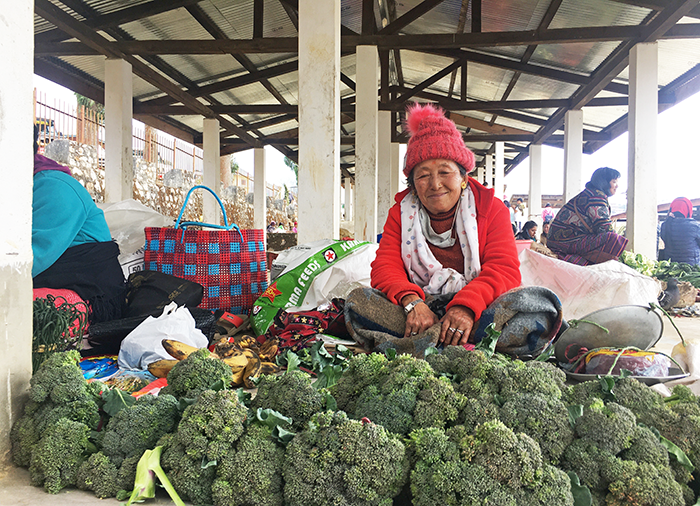If borders are sealed
Chimi Dema | Tsirang
The vegetable capital of the country, Tsirang dzongkhag, had been tasked with a new assignment.
As the country prepares for the worst-case scenario in the light of global Covid-19 outbreak, the dzongkhag is exploring the possibilities of supplying vegetables to nearby dzongkhags should the borders need to be sealed.
Agriculture officials in the dzongkhag are identifying major vegetable producers and vendors in the dzongkhag.
Dzongkhag agriculture officer, Dorji Gyeltshen, said the initiative was to see the quantity of vegetables that each farmer group produces in a week or a month and also to get the quantity that are supplied outside the dzongkhag.
“This would help us understand the amount of surplus that could be supplied to other parts of the country if there is a need,” he said. “We will also collect information on different varieties of vegetable farmers grow.”
Dorji Gyeltshen also said local leaders were asked to track food resources and production as well as the surplus quantity in their respective gewogs.
At the ninth Dzongkhag Tshogdu yesterday, dzongdag Pema also urged the local leaders to increase production and prepare for supplying vegetables to other districts if the borders need to be sealed but prioritising the self-sufficiency at home first.
Known for its mass production of crops and vegetables in the country, Tsirang has been supplying vegetables to Thimphu, Sarpang, and Dagana. Some vendors even sell it in Trongsa and Bumthang.
Given the past supply experiences, Dorji Gyeltshen said it might not be a problem even if they have to supply to nearby dzongkhags.
He said the dzongkhag’s annual performance agreement (APA) had targeted to produce about 3,331 metric tonnes (MT) of vegetables this season. “We have already produced about 3,538MT of vegetables comprising of 19 varieties so far.”
Majority of the harvest this year has been cabbage (579MT), followed by beans (563MT) and radish (422MT). Production increased after ban imposed on the imported of the above vegetables.
While all 12 gewogs in the dzongkhag have ventured into vegetable farming, Dorji Gyeltshen, said farmers in nine gewogs grow on a commercial scale given the accessibility to market.
The major vegetable producing gewogs are Mendrelgang, Gosarling, Patshaling and Kilkhorthang, among others. Of the 6,000 households involved in vegetable production, about 2,500 grow on large and commercial scale.
The nursery for winter vegetable farming usually starts in September and production begins from early January until June. The season for summer vegetable farming is between February and October.
Meanwhile, agriculture minister Yeshey Penjore said that to ensure a continuous supply of essential food items, the government is stocking food resources through Food Corporation of Bhutan Limited to last at least six months.
He said the government is now investing on land development to encourage and enhance local cereal, vegetable and livestock production. “But this doesn’t mean we will achieve food self-sufficiency in the next six months.”
Lyonpo Yeshey Penjore said the government is planning to roll out a stimulus plan within a few days. The details would be shared only after it is adopted.


